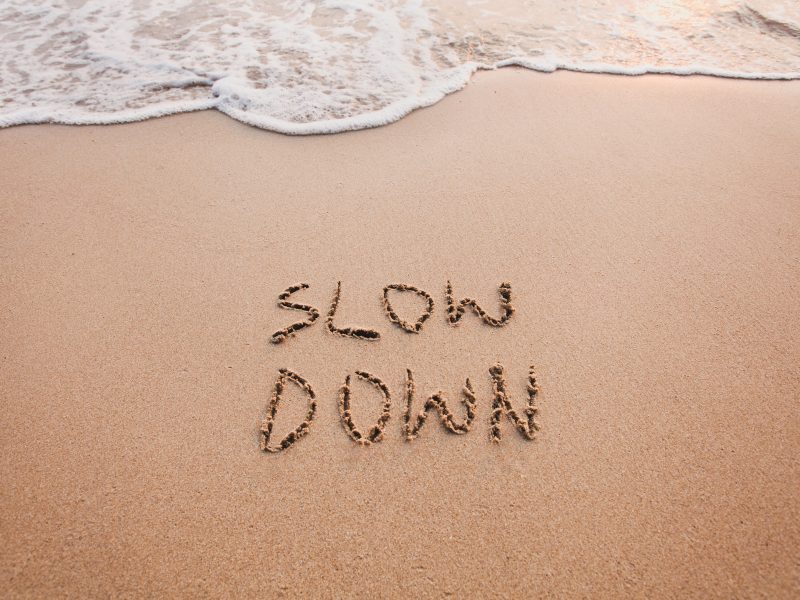
The Cost of a Wandering Mind
The cost of a wandering mind is real. It can lead to physical injuries, weaker relationships, difficulties with physical intimacy, overeating, financial challenges and underperformance at work – just to name a few examples.
It also costs us emotionally. The journal Science says that, “… a wandering mind is an unhappy mind…” Pleasant thoughts (that are not about the present moment) reduce our happiness.
Mindfulness, on the other hand, helps us be aware when we are caught up in a cycle of unhelpful thinking.
Mindfulness Benefits
With mindfulness, you can expect improved:
- Wellness (ability to savour life, feel grateful and shift your perspective)
- Mental health (reduced rumination, anxiety, depression)
- Focus
- Relationships and intimacy
- Decision making
Mindfulness and Spirituality: Another Plus
Many find there is a spiritual awakening that comes with mindfulness. It cultivates a more open and expansive view of ourselves and the world. With practice, we come out of the storyline that dominates our thoughts and reconnect with what is really going on inside of us. When we connect with ourselves fully like this, we also connect to the larger mystery of being alive.
Our minds are naturally very busy, meandering all over the place and some time for no apparent reason. This ability is an asset in many ways. It allows us to be creative, flexible and imaginative, which is just what we need when we are problem solving or having fun. But these mental gymnastics can be very unpleasant when we want to wind down and feel quiet inside. They can also be downright costly if we are not aware of them.
Yes, I’m ready
What Is Mindfulness?
Mindfulness definition: the ability to pay attention to the present moment purposefully, with an attitude of curiosity and compassionate non-judgment.
Mindfulness is essentially the cultivation of an awareness of yourself in the present moment. It involves:
- Paying attention
Yes, we get to choose what we pay attention to. This is very different from letting auto-pilot pull us through the day. - Purposefully experiencing the present moment
Presence refers to the direct experience of our emotions, thoughts, physical sensations and environment. It has no agenda other than to be BE. Psychologist Tara Brach describes it as a “relaxing back” into the aliveness of the moment. Buddhist monk Thich Nhat Hanh writes, “Your true home is in the here and the now.” However you describe it, mindfulness is the awareness of presence and the ability to return home to it over and over again throughout the day. - An attitude of curiosity
Try looking at an orange with no judgments or preconceived ideas. What words would you use to describe it? Can you view your inner life in the same way? - Compassionate non-judgment
We judge almost everything and largely unconsciously. This determines our emotions and our actions. Practicing non-judgment allows us to see circumstances more accurately so we can make better choices about how to respond. It also reduces the needless hurt and turmoil we create for ourselves and allows us to bring more compassion to everything we do.
What Mindfulness Is Not
Mindfulness is not:
- Meditation.
Meditation is only one way to cultivate mindful awareness. - A fad.
It is an evolutionary capacity that developed when our pre-frontal cortex began forming about 75,000 – 100,000 years ago. - An exclusively Buddhist idea.
All humans have this ability and it is not a religious phenomenon although it can have an enormous spiritual impact. - About controlling your thoughts or emptying your mind.
It is about simply observing the mind. - About feeling good.
It is about being with whatever feelings are here in the present moment without judgment. - The same as laser sharp focus.
It is about cultivating an open attitude to whatever is happening. - A waste of time.
It actually saves time from endlessly cycling through the same pattern.
Here’s How It Works
Human beings were designed to survive. Our default modes are to scan for trouble and find a way out. This is helpful in situations when fighting or defending is appropriate. But the reality is that most of our existence in the modern world requires more finesse. To navigate our lives effectively, we need to draw on a set of complex cognitive and emotional skills.
Mindfulness:
- Gives us the awareness to recognize when to find a better strategy
- Slows us down enough to evaluate among the available options, choose and then act
- Balances out the primitive brain’s reflex to dominate decision making
Going Deeper Still
Each of these benefits is only possible because of the improved executive functioning (EF) that comes from practicing mindfulness techniques. This is because EF is what allows you to set goals and stay on course until you have met them. Collectively, they are literally the power that allows you to direct the course of your life.
Mindfulness and Executive Functioning
Mindfulness training allows us access these inner tools. When we have one EF skill that is too strong or too weak, it hijacks our best efforts. (People with ADHD live with this frustration daily, but it is relevant for all of us.) For example, we all know what it is like to forget about an appointment. Weak working memory or poor planning can affect us when we lose focus in the moment.
In short, mindfulness is associated with strong focus, self-monitoring and emotional control. These EF skills act like core muscles in your body, providing a source of stability and energy.
The Science
Studies show that it is possible to strengthen these core EF skills through mindfulness meditation.
- Working Memory:
A 2010 study by Jha et al. studied soldiers under stress prior to deployment. Those who practiced meditation had higher working memory capacity than those who did not (meditate). - Focus:
The Moore and Malinowski (2009) study showed that participants were better at inhibiting distractions and maintaining their focus. - Emotional Control:
Participants who had practiced meditation were better able to refocus on a cognitive task after viewing upsetting pictures. Ortner et al. (2007) - Cognitive flexibility:
This study found that mindfulness meditation improved the ability to observe oneself, reflect upon and integrate past learning into that present moment (Siegel, 2007a). This is key to effective problem solving and learning.
How to Practice Mindfulness?
There are a number of mindfulness exercises you can do to bring ease and awareness into your day:
1. Practice Curiosity and Non-Judgment
Choose to bring an attitude of curiosity to your day. For example, when the barista at your cafe is barking at you, simply observe him/her and wonder what else is going on for them in that moment? Without judging yourself or them, notice is what is going on inside of you too.
 2. Slow Down
2. Slow Down
Slowing down gives your mind and body a moment to get back into sync.
3. Build in Pauses
Take 30 seconds to pause during the day. Breathe deeply and scan your body with curiosity and non-judgment. Then, decide where you want your attention to go.
4. Sticky Notes
These can be worded a way that reminds of your intention to be mindful. For example, “Quiet mind”, “Creative”, “There is no problem”, “Just this breath”, “Just this moment”, “There is only here and now.”
5. Make friends With Your ”Observer”
Have you ever noticed that the observer in your mind watching your pain or anxiety is itself never anxious? This is because the calm you are looking for is actually already here. The more you notice your observer noticing you, the more distance you build between you and reactivity.
6. Practice Acceptance
Accepting the present moment can feel hard to do when you are in pain or triggered. Yet, acceptance is precisely what will reduce the intensity of the experience. Notice any resistance you may be holding inside of you. It can feel like fear, a tightening in your muscles, or a desire to distract yourself. You can acknowledge it saying, “Ah, this too”. Watch it pass.
7. Embrace a Meditation Practice
Like an athlete trains muscles for strength and agility, you can train your mind to become calmer, more focused and flexible. Here are a few ways you can do that:
- Mindfulness breathing:
Follow your breath at the tip of your nose or anywhere else in your body that you most notice it. When thoughts arise, as they will, simply acknowledge them and return gently to the breath. Every time you repeat this cycle, you are strengthening your brain’s ability to come back to the present moment. - Body scan:
Lie down in a comfortable and quiet place. Put your attention at the top of your head or begin at your toes and work upwards. Notice how each part of your body feels – separately. For example, when you notice your hands, you can flex them and feel each finger. Pay attention to the sensations as if for the first time. - Loving kindness meditation:
Let your breath be felt at the heart. Bring a slight smile to your forehead, mouth and heart. Visualize it spreading through your chest. This is not to cover over anything but to sense the openness and receptivity. Look in your mind’s eye at a person who has been easy for you to love. Bring the love you feel for them into your awareness. Now, turn it back towards yourself.
Tips for Recognizing When You Are Not in the Present Moment
When you are pausing during your day, watch for the following:
- The trance of unworthiness.
There is a feedback loop that we get into when we are striving to do things perfectly. Excessive striving and rushing can be a sign that you are trying hard to be enough in this world. The more we feel we are not enough, the harder we try. But the harder we try, the less worthy we feel. The sense that we are enough begins inside of us, not in the approval of others.
- Non-acceptance of what is here.
Any time you are resisting, fighting or viewing life as a problem to be solved, is a moment you are not present. Presence by definition requires non-judgment. Everything in life simply exists. It is not good or bad. WE are not good or bad. If you find yourself judging, you are likely resisting what IS. - The controller is in charge.
The controller in us often tries to regulate each moment so that we won’t feel uncomfortable. But when we do this habitually, we are not really in charge. We are just buying into the fantasy that we can control anything other than ourselves. - Distracting ourselves.
Like drinking yet another glass of wine, we start doing something more pleasurable instead of experiencing the unpleasantness of a situation. As Pema Chödrön has said, “The essence of bravery is being without self-deception.”
Yes, I’m ready


 2. Slow Down
2. Slow Down 



 Personal Leadership: Your Ticket to Transformation
Personal Leadership: Your Ticket to Transformation



